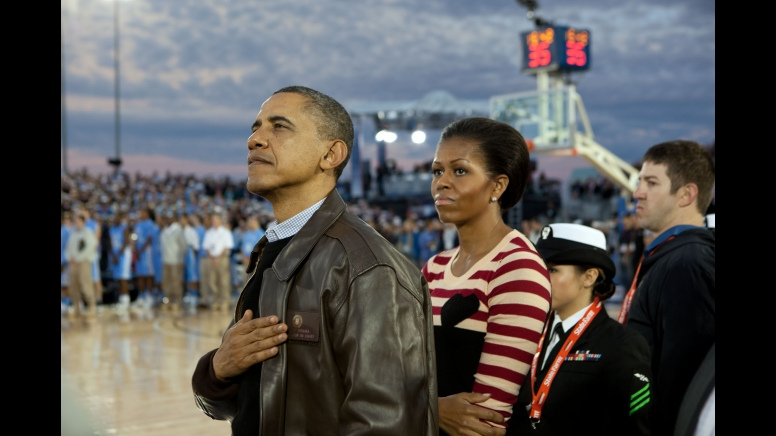America’s First Lady Michelle Obama is coming to Liberia to promote education for girls. But Liberian girls face far greater life and death challenges, more daunting than education. It will take much more than a single trip to protect the lives of endangered Liberian girls and fix Liberia’s broken education system.
According to a 2014 report, 67 percent of primary school age girls are out of school. Liberia ranked second only to South Sudan in the share of primary school-age girls who aren’t enrolled in school, according to another 2016 report by UNESCO.
There are no easy answers to the complexities of the cultural, political, economic, and academic challenges facing Liberia’s education system in general, and girls’ education in particular. However, America is strategically positioned to leverage its relationship with Liberia and use its foreign aid to save the lives of endangered girls, as well as attain more than the basic requirements for quality education for girls.
With the Liberian public service as the primary path to getting rich and the deadly consequences for children, America must act now.
A 2000 working paper produced by UNICEF identified the five necessary factors for quality education:
- Learners who are healthy, well-nourished and ready to participate and learn, and supported in learning by their families and communities;
- Environments that are healthy, safe, protective and gender-sensitive, and provide adequate resources and facilities;
- Content that is reflected in relevant curricula and materials for the acquisition of basic skills, especially in the areas of literacy, numeracy and skills for life, and knowledge in such areas as gender, health, nutrition, HIV/AIDS prevention, and peace;
- Processes through which trained teachers use child-centered teaching approaches in well-managed classrooms and schools and skillful assessment to facilitate learning and reduce disparities;
- Outcomes that encompass knowledge, skills, and attitudes, and are linked to national goals for education and positive participation in society.â€
Democracy is the single factor with the potential of significantly impacting all five of the UNICEF indicators mentioned above.
Given the fact that Liberia is rich in both material and human resources, advancing participatory democracy is one leverage point that can revolutionize Liberia’s education system.
Although American democracy is old, outdated, and often stuck in gridlock, America is, nonetheless, democratic. Liberia is not. Therefore, American politicians can leverage foreign aid tailored to advance participatory democracy with the goals of literally saving girls’ lives and revolutionizing Liberia’s education.
America has been unfair in advancing democracy in the world. While America has withheld foreign aid and been vocal in criticizing undemocratic countries like Zimbabwe and North Korea, the Obama administration has played deaf ears to Liberia’s deadly democratic woes exacerbated by corruption and ritualistic killings.
American students have breakfast, lunch, and transportation to school, but resources for Liberian school teachers and students have been diverted into perks for politicians, leaving no money for basic needs such as food, drinking water or toilet facilities at most schools.
On the other hand, the offices of two Liberian legislators — the Senate president and the Speaker of the House — have a combined budget of over US$2 million dollars in addition to government-issued cars, drivers, gas slips and other benefits.
For a post conflict-country with a budget of US$555 million, a Liberian senator recently disclosed that his salaries and benefits amount to US$8,500 monthly or US$102,000 annually. Compare this salaries of the Liberian legislators to the salary of US$65,000 for legislators in Massachusetts, a state with an annual budget of US$39 billion and without the natural resources of Liberia.
The huge salaries of Liberian politicians have turned the country into a den of thieves and cold-blooded murderers who often go unpunished.
In Nimba County alone, there have already been 17 ritualistic killings in this election season, prompting Senator Thomas Grupee to vow to introduce a bill reinstating capital punishment. Ritualistic killers believe human sacrifices increase their chances of winning elections and getting rich. Â Liberian girls are in more danger than boys because ritualistic killers believe the blood of girls is four times more powerful than the blood of boys.
Moreover, in signs of deteriorating democracy, the Liberian president single-handedly appoints all governors of all political sub divisions, all mayors of all cities, all justices of the Supreme Court, all chiefs, all heads of public corporations, all presidents of state-sponsored universities, and all ministers of government.
Relatively speaking, the Liberian president has more power than President Obama, the Queen of England, and the Pope of Rome.
To make a lasting impact on Liberian education and the lives of adolescent Liberian girls, First Lady Michelle Obama needs more than one expensive fly-through safari vacation trip at the end of a second term American presidency.
She must prevail on President Obama to leverage America’s historic relationship with Liberia and use American taxpayers’ money to promote democracy in Liberia. With elections in November, the Obama clock is ticking.
Without a strategy for Liberia, this ‘drive-by’ or rather, “fly-by†initiative, by First Lady Obama is a bit too little too late to impact anything significant in Liberia, much less the gigantic issue of the daily threat to the lives of Liberian girls and girls’ education.
Featured photo by Pete Souza/White House



